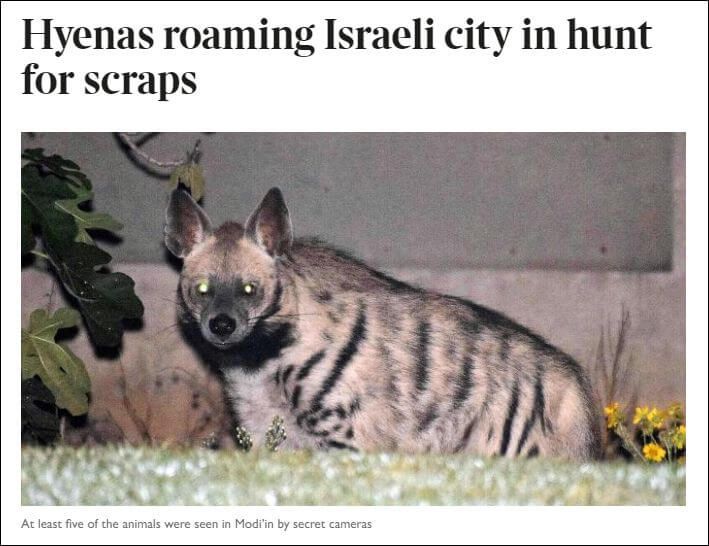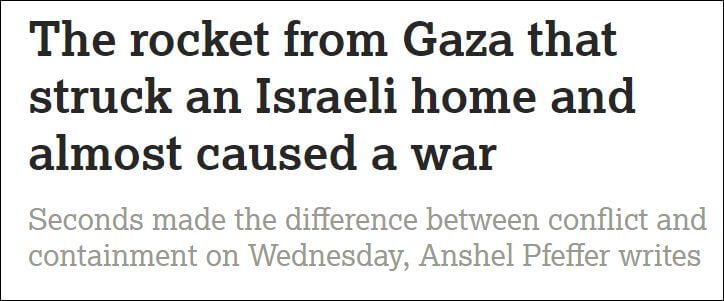In the past week we noted the lack of coverage in the UK press of a Palestinian rocket attack from Gaza that landed on a house in Beersheba. That the occupants were not killed was thanks to a single mother getting her three children into their reinforced safe room with literally seconds to spare before the rocket blew their home apart.
Out of the British newspapers that did cover the incident, The Times of London published a few poorly edited sentences from the AFP wire service in its News in Brief section on the Thursday. That was all Times editors devoted to the story.
So what were Times editors’ priorities in the aftermath of the Beersheba attacks?
Hyenas
The following day, there was this story from Israel correspondent Anshel Pfeffer.

Hyenas in the Israeli city of Modi’in are a fun local story (in the interests of full disclosure, I happen to live there and one of the hyenas dashed past my son just a few weeks ago near my home) and it is refreshing to read articles ‘beyond the conflict.’ However, why is this more important than a rocket strike?
A Celebrity Wedding
The next day, another story, again written by Anshel Pfeffer, not directly related to the conflict albeit one that exposes various religious and ethnic fault lines within Israel.

Again, there is nothing wrong with covering all of Israel’s complexities, be they Arab-Jewish relationships, wild animals on the loose or any number of news items that make Israel such a fascinating place. Indeed, it is to the credit of media outlets such as the New York Times, Washington Post and The Times of London that they have hired ‘local’ reporters with intimate knowledge of the country to bring a broader flavor to their coverage and to assist bureau chiefs sent from the US, UK etc.
The rocket that almost caused a war
Anshel Pfeffer is one such local. And did he really think that the Beersheba rocket attack was not newsworthy?
Clearly not based on a comment piece he filed for the UK’s Jewish Chronicle immediately after the attack where he states: “Seconds made the difference early on Wednesday morning between a new war in Gaza and retaining Israel’s present policy of containment and negotiation.”

So The Times’ own journalist thought the incident significant enough to write that it could have led to a war yet his own newspaper treated it as worthy of only a single paragraph and, to add insult to injury, followed up with stories that were clearly click bait in comparison.
Editors at The Times had a journalist on the ground but one who had already written about the Beersheba incident for another media outlet. Yet they didn’t think it was worthy of a proper article.
If, as a result of incidents such as the one in Beersheba as well as a constant wave of border riots, incendiary balloons and other terror, Israel launches military operations or counter-terror measures, the chances are that these will create headlines. If readers are unaware of the terror that preceded an operation, Israel clearly becomes the aggressor – ‘it all started when Israel fired back.’
By all means cover Israel beyond the conflict but make sure that readers are getting the full picture.


